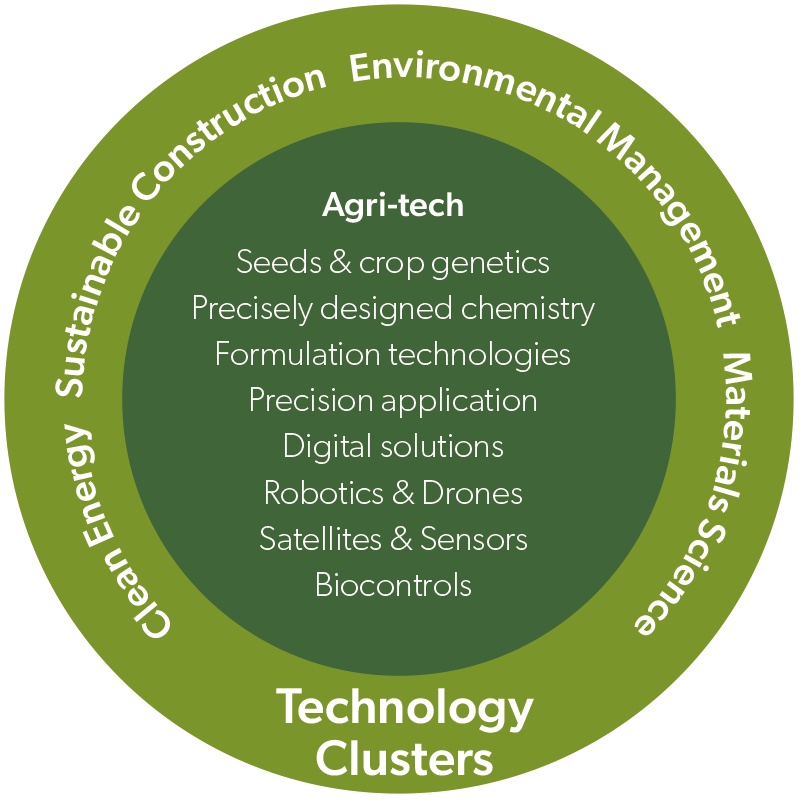The new Science and Innovation Park will create an important destination for companies, academic partners and wider organisations to cluster. Together they, and Syngenta, will work to find technical solutions to pressing global environmental challenges such as energy efficiency, mitigation and adaption to climate change, water and resource management, food security and the replacement of plastics - all of which are highlighted as key priorities for Government.
The Government’s Industrial Strategy highlights the UK's world-leading capabilities in precision agriculture and the rising global demand for food and the need to put the UK at the forefront of advanced sustainable agriculture stating that "Innovation clusters will form and grow around our universities and research organisations, bringing world-class research, business expertise and entrepreneurial drive."
The new Science and Innovation Park will be a key centre for helping deliver the Clean Growth pillar of the UK's Industrial Strategy for the 21st Century.
Fostering collaboration across industries within agri-tech, life sciences, environmental management, clean energy, digital science, materials science and adjacent industries will place Jealott’s Hill at the forefront of new knowledge and skills resulting in exportable products and technologies.
The park is essential to our future vision: innovation achieved through collaboration and partnership.
With this opportunity we can direct investment to Jealott’s Hill.
The Government's Industrial Strategy identifies 'clean growth' as one of 4 'grand challenges' which are global trends and opportunities. The development at Jealott's Hill is an opportunity to help put the UK at the forefront of these industries of the future, to improve the lives of people across the world.

The vision for the Science and Innovation Park will also help address UN Sustainable Development Goals, including "Zero Hunger" and "Climate Action."
No other UK site (Syngenta or otherwise) has the depth and breadth of scientific infrastructure to enable the pioneering research needed to create advanced solutions for sustainable agriculture and to enable adoption by farmers globally.
With Syngenta as the anchor institution at the new Science and Innovation Park, the R&D potential for tackling the clean growth agenda is huge. It will bring together agri-tech, life sciences, environmental management companies to address issues such as: